Air purifiers and humidifiers are no longer new devices in the market. They are pieces of technology that have been around for a while now and are also widely used by people, too.
Though people often use the two interchangeably, there is a fine line between the function of both the devices, which can be obviously noted by their names.
From their functions to their role in households, everything about the two devices is different, and in this article, we’ll discuss these differences.
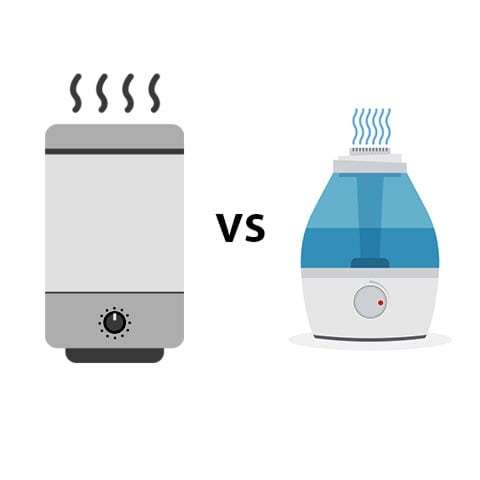
Photo credit: homeairguides.com
What is an Air Purifier?
Air purifiers, as the name suggests, are devices that work to purify the surrounding air. The first air purifier ever was invented by Charles Anthony Deane. The model was, however, very different from the present day air purifiers. It underwent a lot of modifications until the 1950s when the first HEPA filter was introduced.
These filters quickly gained popularity due to their efficient air filtering technique, but it wasn’t till 1963 that these air purifiers started being used residentially. Jump to the present day and presently, these devices are being widely used by almost every other person.
What is an Air Purifier Best For?
An air purifier improves indoor air quality by trapping airborne contaminants and air pollutants or eliminating them. An air purifier serves the following functions:
Reduces the Spread of Airborne Diseases
It’s very easy for the flu to spread throughout a household. However, an air purifier will trap these viruses and keep the air clean.
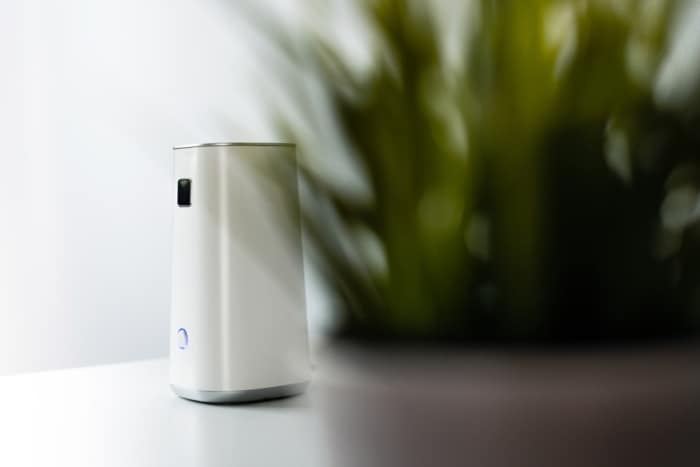
Photo credit: freshairguru.com
Neutralize Unpleasant Odors
Air purifiers with a HEPA filter and an activated carbon filter are very effective at trapping gases and airborne particles. They tend to absorb any unnatural odors, such as the one coming from cooking oil and spices as well as aerosol sprays, upholstered furniture, or air fresheners.
Improves Sleep
An indoor allergen, such as bacteria, fungi, and dust mites, can trigger allergies or hay fever. This can result in frequent sneezing, coughing, and a running nose, which disrupts your sleep. An air purifier will help improve your sleep by filtering out these allergens.
Types of Air Purifiers
There are a variety of air purifiers in the market. The different types are dictated by the types of filters. Some have a HEPA filter while other filters are activated by carbon or UV light.
HEPA Filters
Air purifiers with a HEPA filter can capture pollutants as small as 0.3 microns in size. To put it into perspective, the smallest size of the particle visible to the human eye is at least 50 microns.
Activated Carbon
An activated carbon filter is only useful in trapping and neutralizing unwanted odors. It can’t capture viruses or allergens the way a HEPA filter does.

Photo credit: stanford.edu
Electrostatic Precipitators
Air purifiers with an electrostatic precipitator use high-voltage electricity to charge the particles passing through the filters.
These particles then get stuck on the electrostatic plate fitted inside the purifiers.
Ultraviolet Light Air Purifiers
Just as the name suggests, these purifiers use UV rays to kill any harmful particles floating in the air. However, some of these purifiers release ozone, which is potentially harmful.
Ozone Generators
These purifiers absorb foul odors. However, they release very high levels of ozone, so they aren’t suitable for domestic use. Ozone generators are mostly used for large-scale odor removal.
Review of the Best Air Purifier
Over the past years, air purifiers have taken many forms, coming to the present day where there are a wide range of air purifiers available, all that work in different ways with different sorts of filters used for different reasons.
Choosing the best one for you can be tricky if the right features are not considered. Here are the best air purifiers that one can invest in, considering all the important aspects of the devices that should be evaluated.
Best Air Purifier Overall:
Alen BreatheSmart Classic Air Purifier

PROS
CONS
Alen BreatheSmart Classic with its HEPA Pure Filter ensures that the air around you is thoroughly filtered from all sorts of dust particles, pollen, pet dander, and various allergens, allowing you to breathe in fresher air.
The model offers an innovative design that features 15 panel options that allow the device to match with the interior of your house brilliantly. The functionality of the device is just as remarkable as its design, giving you a powerful coverage of up to 1100 square feet of area.
The device works while producing minimal noise, so as not to disturb your everyday life or peaceful nights. Moreover, it produces white, pink, and red noises that soothe you and help you relax
What is a Humidifier?
Humidifiers are appliances that are used to increase the levels of humidity in a room. The first humidifier was invented by Raymond Banks back in 1962. The devices were initially not well received, and it took a while before they eventually took off.
But coming to the present day, humidifiers are widely used by people, proving that they have become a device of importance in a number of households. Humidifiers are of many types, primarily industrial, portable, or fixed.
Their functions may slightly vary depending upon the type of humidifier being used and its role. They generally benefit the most when used in hot, dry places where there is naturally low humidity.
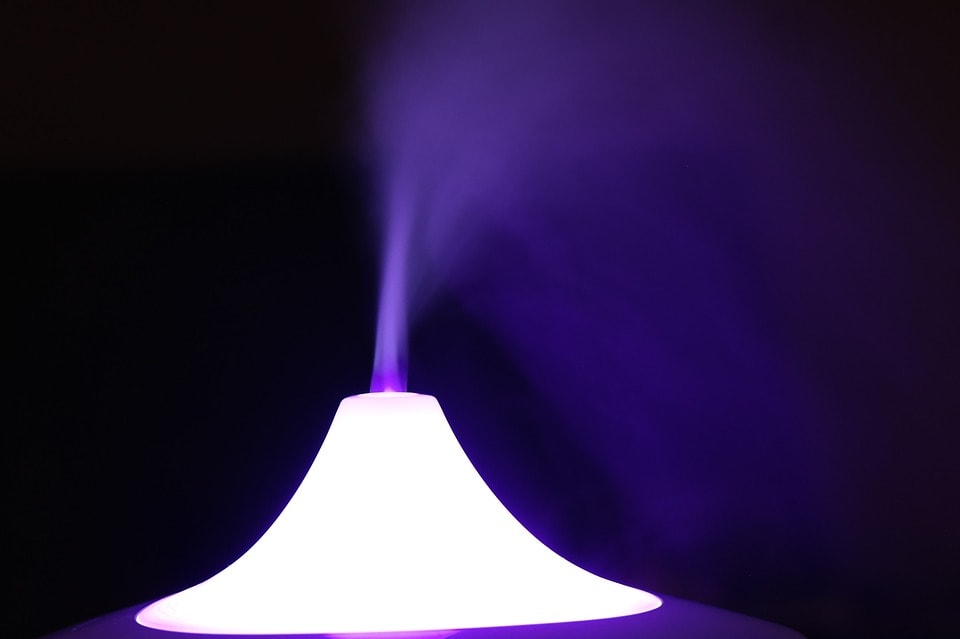
What is a Humidifier Best For?
An air humidifier adds moisture into the air by converting water into a cool mist and then pumping it into the air in regulated amounts. The main purpose of a humidifier is to soothe the irritation caused by dry conditions. Other benefits of using a humidifier include:
Keeping the Skin and Hair Moist
It’s very easy for the skin, lips, and hair to become dry and fragile during the winter. This is because most heating units tend to pump hot, dry air. A humidifier will mitigate those effects so your skin doesn’t dry out.
Making a Cough More Productive
Dry air can result in an unproductive cough. A little more humidity in the air will allow your airways to receive more moisture and produce a more productive cough that releases trapped phlegm.
Preventing Influenza
In a recent study, researchers noted that humidifiers can potentially reduce your risk of catching the flu. According to the study, humidity levels above 40% rapidly deactivated virus particles, making them much less likely to be infectious.
Types of Dehumidifiers
There’s a wide range of humidifiers on the market, with all of them serving the same purpose. The difference comes down to preferences, budget, and the size of your area.
Central Humidifiers
These humidifiers are built directly into the air conditioner or heating system. They uniformly add humidity to the air.
Evaporators
Evaporators blow moisture through a moistened filter. Fans power the unit and expel the humidity into the air from a single-unit system. They’re relatively cheap compared to central humidifiers but can only be used in one room at a time.
Impeller Humidifiers
These use rotating disks running at high speed to vaporize water. As a result, they’re very child friendly and don’t carry any risk of burns.
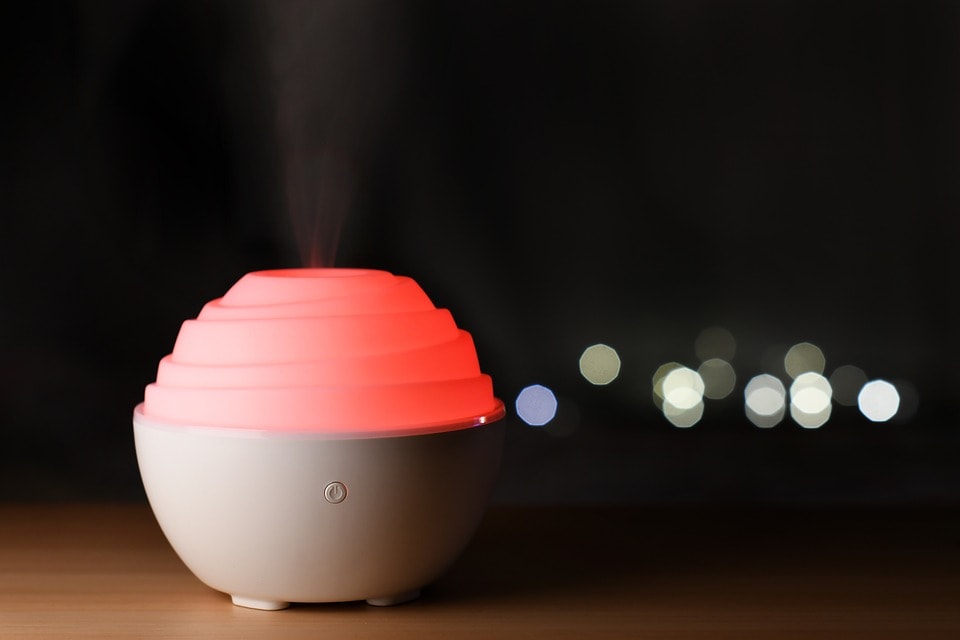
However, just like evaporators, they can only be used to humidify one room.
Ultrasonic Humidifiers
An ultrasonic humidifier uses ultrasonic vibrations to produce a cool mist. They’re also very child friendly, just like impeller humidifiers. Prices vary depending on the size.
Review of the Best Humidifier
Choosing the right humidifier and perhaps the best one for yourself can be a daunting task and may become a frustrating one given the great number of devices available in the market. For your convenience, here are the best humidifiers that have been tested and reviewed, so you can decide which one would work the best for you.
Best Humidifier Overall:
Honeywell HCM350

PROS
CONS
If you’re looking for a solution for the hot and dry atmosphere that has been bothering you for a while now, this cool mist humidifier by Honeywell is the perfect choice for you. It will not only increase the levels of humidity to aid your comfort but also help with the hot weather that can get on your nerves fairly quickly.
This device is equipped with a one--gallon tank that will last you an entire day if kept running on low. This makes it perfect for normal-sized bedrooms, cooling and humidifying the air around. It also features an ultraviolet technology that will kill almost all the germs present in the water being used to ensure your best health.
The cool mist humidification of this device can help you by aiding your comfortable breathing, sleeping, and provide further comfort for your nasal congestion and dry skin.
Air Purifier vs Humidifier: Which One's Better?
An air purifier and air humidifier both have a significant impact on your home’s air quality. However, they each serve a different purpose and carry distinct advantages and disadvantages.
Air Purifiers vs Humidifiers - Similarities and Differences
Now that we’ve looked at the best air purifiers and humidifiers, let’s take a look at ways in which they are both different and alike. We will see what features make them suitable for what requirements. This is essential in order to understand which one of the two devices is more beneficial for you to invest in.
Air Purifiers vs Humidifiers - Differences
Given the fact that the devices provide two completely different functions, the two have a number of differences.
Function
The most basic difference between the two devices is their function. An air purifier is a device used to filter a number of particles and pollutants from the air that can be irritable or harmful.
A humidifier, on the other hand, adds to the levels of humidity on a room which is beneficial in areas with low humidity.
In other words, an air purifier removes harmful substances from the air, while a humidifier adds a beneficial one to it.
Working
Given that the function of the two devices is greatly different, so is their working. An air purifier works by using filters that act as sieves. These sieve-like filters trap the unwanted particles and pollutants within them, circulating purified and fresh air through the room.
A humidifier, on the other hand, works by adding water vapor to the air in the room.
It does so by turning the water that is put into the device into water vapors which are then dispersed into the surrounding air.
Certain humidifiers can also be used as diffusers by simply adding essential oils or fragrances to the water being used. Meanwhile, no such use can be made of air purifiers.
Allergies
An air purifier is capable of helping people with allergies. It does so by efficiently removing a number of irritants and allergens from the air, providing relief to those dealing with the struggle of allergies.
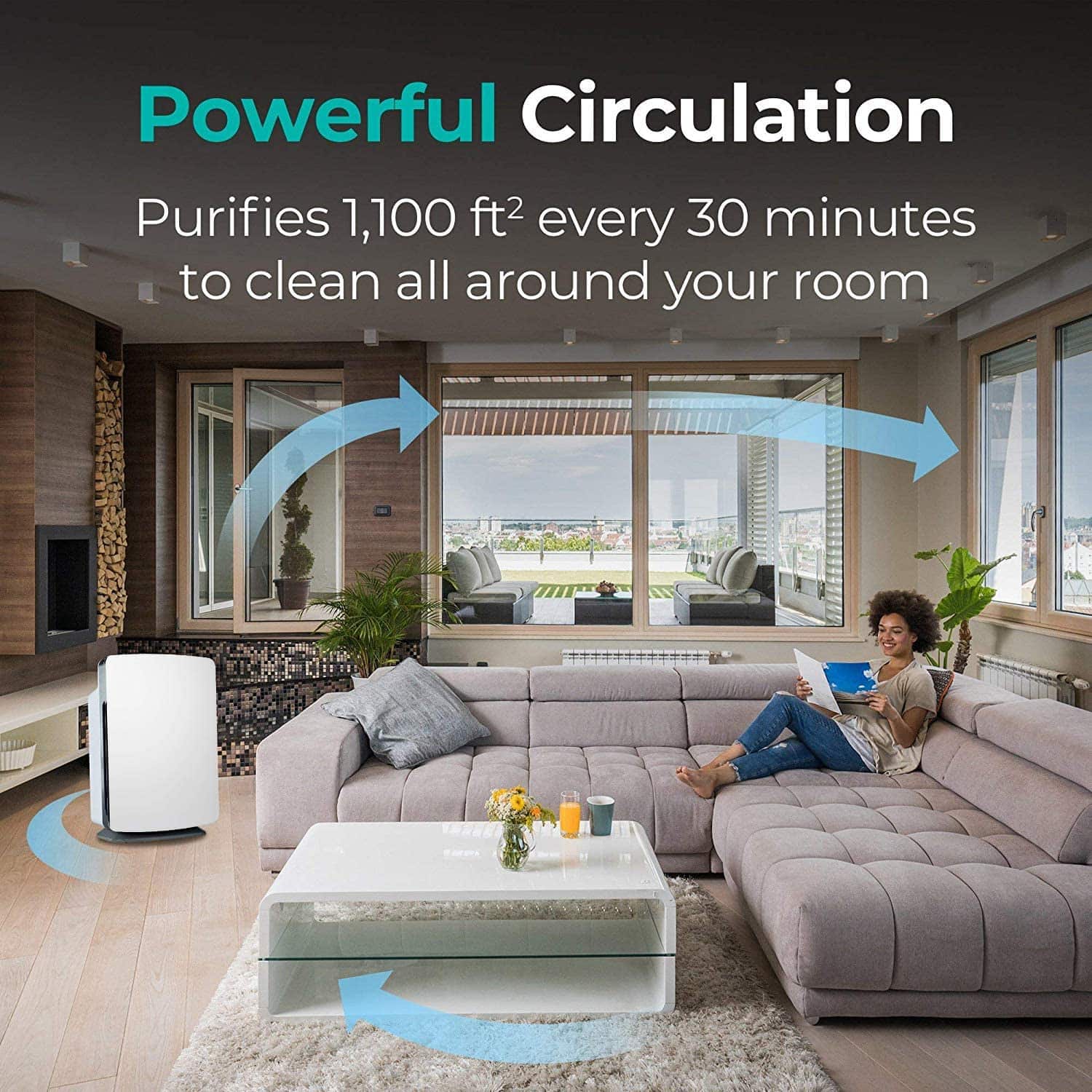
Alen BreatheSmart Classic Air Purifier
A humidifier, on the other hand, can’t be of much help for those with allergies as it can only add moisture to the room’s atmosphere.
Mold
An air purifier can help you get rid of mold from your home as it removes a number of particles from the air which may include mold spores.
On the contrary, a humidifier may encourage the growth of mold, if it increases the levels of humidity in a room above 50%
Air Purifiers vs Humidifiers – Similarities
Even though air purifiers and humidifiers work on different principles, the two do share a few common features.
Easier Breathing
Both air purifiers and humidifiers are designed to provide ease to one’s lungs. An air purifier does so by removing the harmful particles that may harm us by being breathed in.
Meanwhile, a humidifier helps by adding moisture to the air, reducing the harsh effects of coughing and irritation that can be caused by low levels of humidity.
Increased Air Quality
Be it through adding moisture to the surrounding air, or by removing unwanted substances, both these devices function to provide you with an enhanced air quality around you, which will eventually put you in better health and a better state of mood as well.
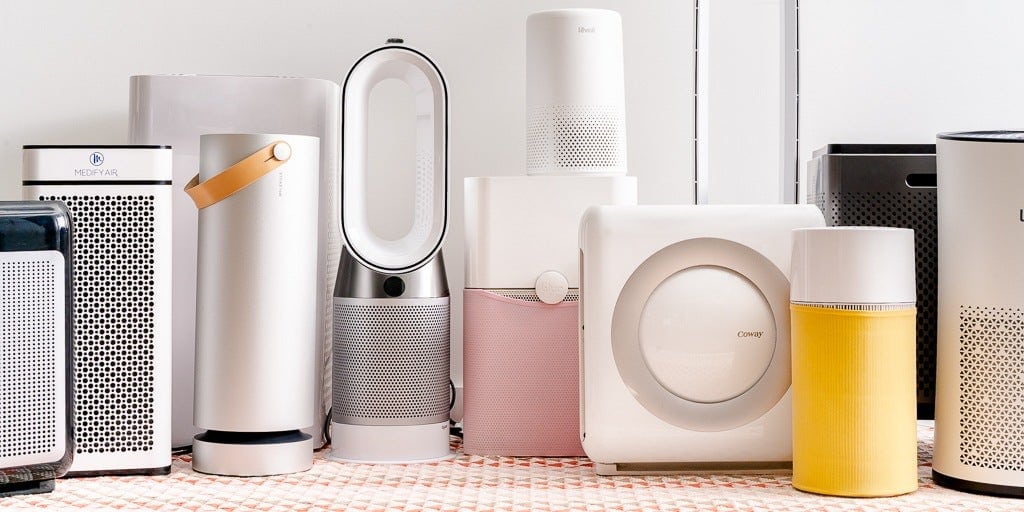
Photo credit: nytimes.com
Asthma
Asthma is a condition which presents with episodes of impaired ability to breathe. An air purifier and humidifier both have been proven to be useful for those suffering from asthma.
An air purifier does so by removing any irritants that might trigger an episode, while a humidifier helps by providing easier breathing through increased levels of humidity.
Top Pick Between Air Purifier and Humidifier
It's important to understand that air purifiers and humidifiers, though they bear a few similarities, are still two different devices with two different functions. For either of them to be the best pick greatly depends upon the need of the person buying.
If you suffer from allergies or asthma, or in an area which generally has a lot of smoke in the air, then an air purifier is the more suitable option for you, especially the Alen BreatheSmart Classic Air purifier, as it will be sure to rid your surrounding air of whatever particles have been bothering you.
If your prime concern isn’t allergies, but the hot and dry climate that has rendered you prone to a chronic cough or an irritable respiratory tract, or even simply made your asthma worse, a humidifier is the right device to invest in and the VicTsing Cool Mist Ultrasonic Humidifier is absolutely the perfect one. It will greatly increase the levels of humidity in your room up to a level that allows comfortable breathing, while ensuring not to over-humidify the air, not allowing any room for mold to grow.
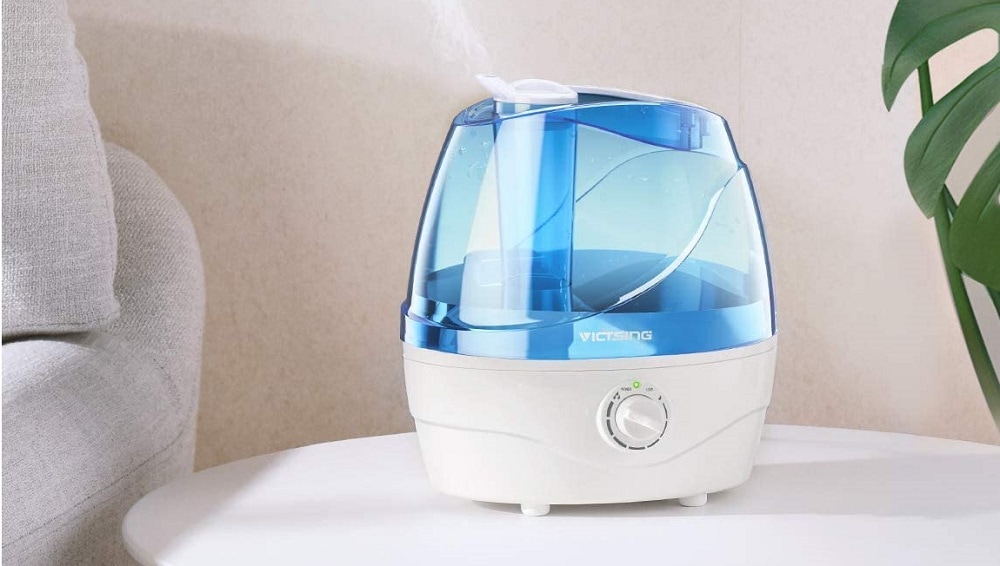
Photo credit: smartcleaningtips.com
Conclusion
Air purifiers and humidifiers both work to provide you easier breathing and better air quality, but in different ways, serving different functions. If you correctly evaluate your needs and invest in the right device, you will greatly benefit from it. You just need to make sure that you concentrate on the right aspects of each product.
People Also Ask
It’s understandable if there are still some lingering questions regarding purifiers and dehumidifiers. Here are some of the most commonly asked questions.
Which is Better for Allergies, an Air Purifier or Humidifier?
Purifiers are the best when it comes to allergies. This is because they eliminate dust, pollen, pet dander, mold spores, and other allergens from the air. Humidifiers, on the other hand, may even increase these allergens when the humidity becomes too much.
What is Best For Indoor Winter Air, a Humidifier or Purifier?
During the winter, indoor air tends to be warm and dry because of the heating system. Therefore, a humidifier might be very helpful as it keeps the air moist. Besides, it may help relieve a stuffy nose and the discomfort of colds or the flu.
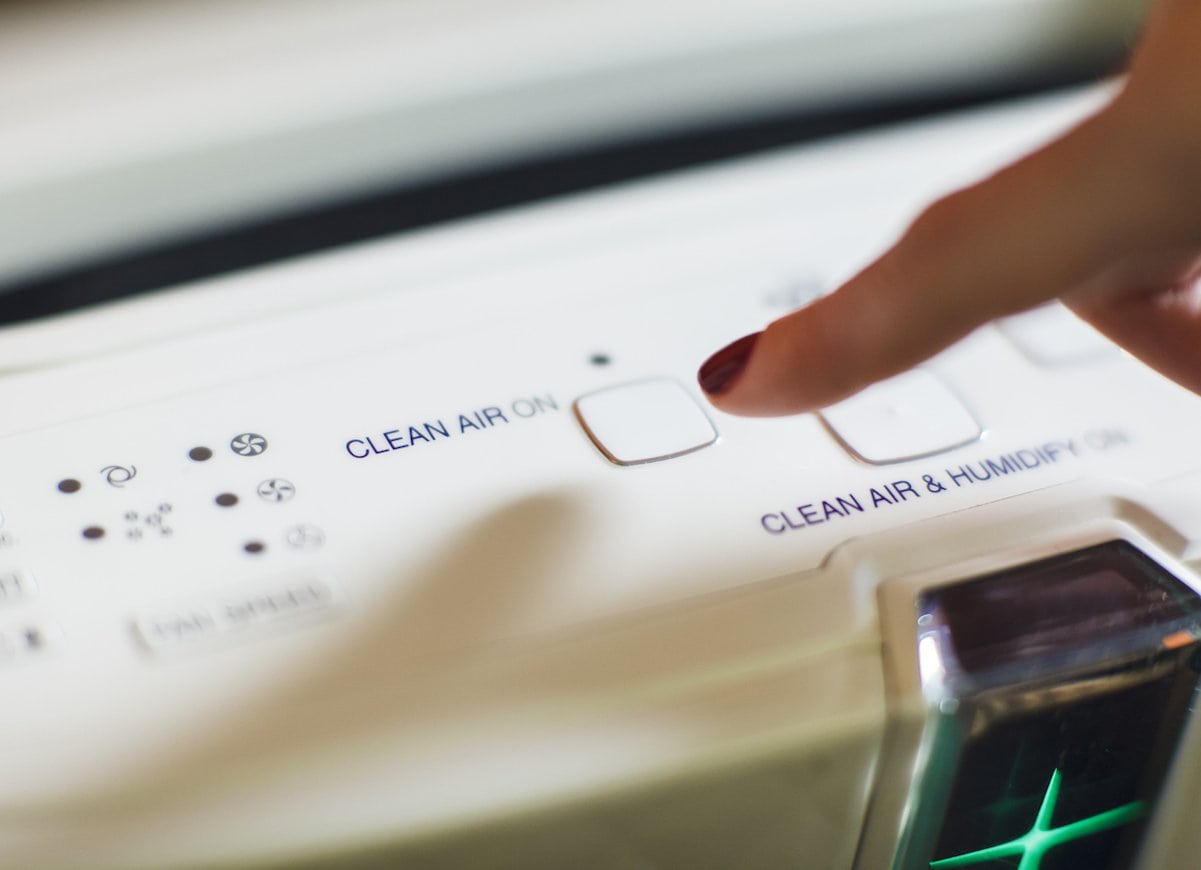
Photo Source: BobVila.com
Can You Run a Humidifier and Air Purifier at The Same Time?
There’s no reason you can’t run a humidifier and purifier at the same time. They both serve different functions and aren’t mutually exclusive. Just ensure you conduct proper maintenance so they can serve you efficiently.
